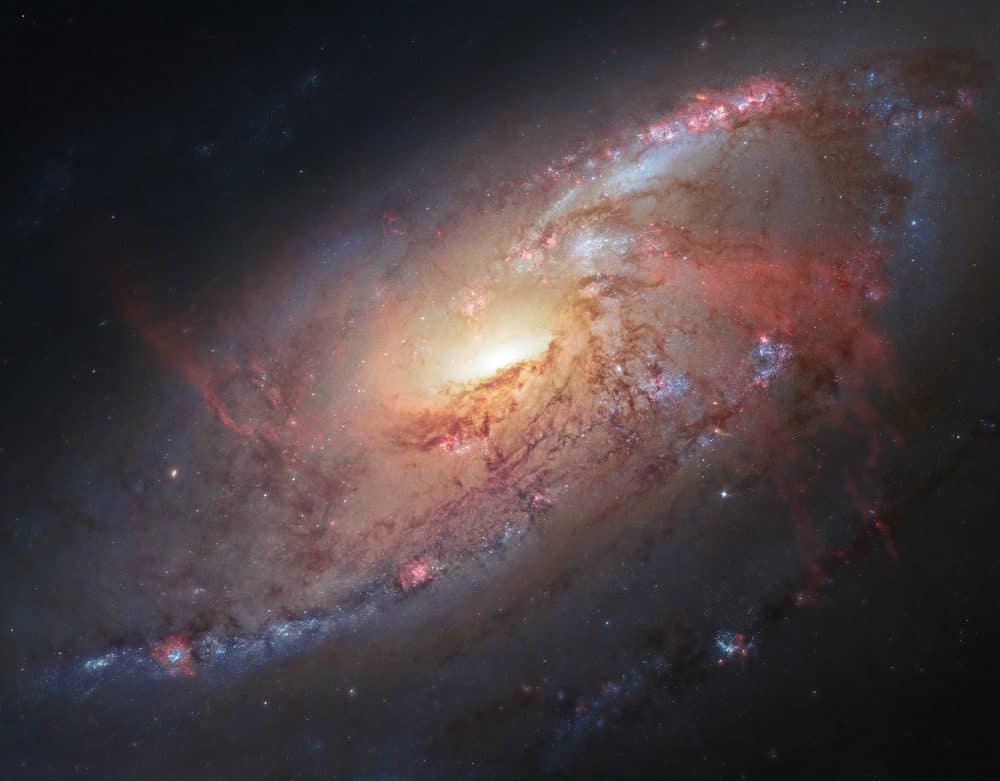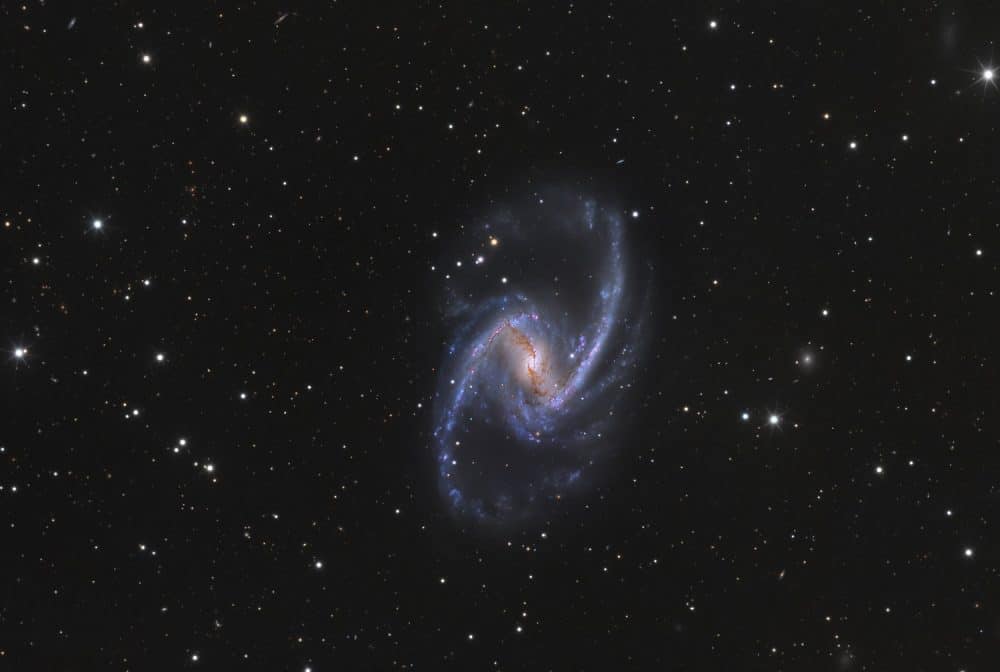Blog
Jonah Jones (born Robert Elliott Jones; December 31, 1909 – April 29, 2000) was a jazz trumpeter who created concise versions of jazz and swingand jazz standards that appealed to a mass audience. In the jazz community, it can be argued that he might be best appreciated for his work with Stuff Smith. He was sometimes referred to as “King Louis II,” a reference to Louis Armstrong. Jones started playing alto saxophone at the age of 12 in the Booker T. Washington Community Center band in Louisville, Kentucky before quickly transitioning to trumpet, where he excelled.
Jones was born in Louisville, Kentucky. Jones began his career playing on a river boat named Island Queen, which traveled between Kentucky and Ohio. He began in the 1920s playing on Mississippi riverboats and then in 1928 he joined with Horace Henderson. Later he worked with Jimmie Lunceford and had an early collaboration with Stuff Smith in 1932. From 1932 to 1936 he had a successful collaboration with Smith, but in the 1940s he worked in big bands like Benny Carter‘s and Fletcher Henderson‘s. He would spend most of a decade with Cab Calloway‘s band which later became a combo.
more...Kautokeino, Sápmi Norway
more...NGC 986 — a barred spiral galaxy discovered in 1828 by James Dunlop. This close-up view of the galaxy was captured by Hubble’s Wide Field and Planetary Camera 2 (WFPC2).
NGC 986 is found in the constellation of Fornax (The Furnace), located in the southern sky. NGC 986 is a bright, 11th-magnitude galaxy sitting around 56 million light-years away, and its golden centre and barred swirling arms are clearly visible in this image.
Barred spiral galaxies are spiral galaxies with a central bar-shaped structure composed of stars. NGC 986 has the characteristic S-shaped structure of this type of galactic morphology. Young blue stars can be seen dotted amongst the galaxy’s arms and the core of the galaxy is also aglow with star formation.
To the top right of this image the stars appear a little fuzzy. This is because a gap in the Hubble data was filled in with data from ground-based telescopes. Although the view we see in this filled in patch is accurate, the resolution of the stars is no match for Hubble’s clear depiction of the spiral galaxy.
more...John Cowan Hartford (December 30, 1937 – June 4, 2001) was an American folk, country, and bluegrass composer and musician known for his mastery of the fiddle and banjo, as well as for his witty lyrics, unique vocal style, and extensive knowledge of Mississippi River lore. His most successful song is “Gentle on My Mind“, which won three Grammy Awards and was listed in “BMI’s Top 100 Songs of the Century”. Hartford performed with a variety of ensembles throughout his career, and is perhaps best known for his solo performances where he would interchange the guitar, banjo, and fiddle from song to song. He also invented his own shuffle tap dance move, and clogged on an amplified piece of plywood while he played and sang.
Harford (he would change his name to Hartford later in life at the behest of Chet Atkins) was born on December 30, 1937 in New York City to parents Dr. Carl and Mary Harford. He spent his childhood in St. Louis, Missouri. There he was exposed to the influence that would shape much of his career and music—the Mississippi River. From the time he got his first job on the river, at age 16, Hartford was on, around, or singing about the river.
more...Ellas McDaniel (born Ellas Otha Bates, December 30, 1928 – June 2, 2008), known as Bo Diddley, was an American singer, guitarist, songwriter and music producer who played a key role in the transition from the blues to rock and roll. He influenced many artists, including Elvis Presley, the Beatles, the Rolling Stones, and the Clash.
His use of African rhythms and a signature beat, a simple five-accent hambone rhythm, is a cornerstone of hip hop, rock, and pop music. In recognition of his achievements, he was inducted into the Rock and Roll Hall of Fame and received Lifetime Achievement Awards from the Rhythm and Blues Foundation and a Grammy Award from the National Academy of Recording Arts and Sciences. He is also recognized for his technical innovations, including his distinctive rectangular guitar, with its unique booming, resonant, shimmering tones.
https://www.youtube.com/watch?v=MAGoqMZRLB4
more...James Henry Jones (December 30, 1918, Memphis, Tennessee – April 29, 1982, Burbank, California) was an American jazz pianist and arranger.
As a child, Jones learned guitar and piano. He worked in various orchestras in Chicago from 1936 and played in a trio with Stuff Smith from 1943 to 1945. Following this, he played with Don Byas, Dizzy Gillespie (1945), J.C. Heard (1945–47), Buck Clayton (1946) and Etta Jones. He accompanied Sarah Vaughan from 1947 to 1952 and then again from 1954 to 1957 after a long illness. In 1954, he played on an album with Clifford Brown and accompanied him on his European tour. Around this time, he also played with Helen Merrill and Gil Evans. In 1959, he accompanied Anita O’Day in her appearance at the Newport Jazz Festival and also worked with Dakota Staton, Pat Suzuki, and Morgana King.
As a pianist and arranger in New York, he worked in the 1960s with Harry Belafonte, Johnny Hodges, Budd Johnson, Nat Gonella, and Clark Terry. He accompanied Chris Connor on “Where Flamingoes Fly” and sat in with the Duke Ellington Orchestra for some collaborations with Ella Fitzgerald. Jones did a fine set with his trio (Jimmy Hughart and Grady Tate) at the Antibes Jazz Festival in 1966, and he went on tour with Jazz at the Philharmonic the following year. In the 1970s, he worked with Kenny Burrell and Cannonball Adderley.
In the course of his career, Jones played piano on recordings by Harry Sweets Edison, Ben Webster, Big Joe Turner, Coleman Hawkins, Frank Wess, Milt Jackson, Sidney Bechet, Sonny Rollins, Sonny Stitt, and Thad Jones and worked as an arranger for Wes Montgomery, Nancy Wilson, Shirley Horn, Joe Williams, Billy Taylor, and Chris Connor.
more...Polynesia
more...https://www.youtube.com/watch?v=kTMbHaLySxU
more...This image combines Hubble observations of Messier 106 with additional information captured by amateur astronomers Robert Gendler and Jay GaBany. Gendler combined Hubble data with his own observations to produce this stunning colour image.
Messier 106 is a relatively nearby spiral galaxy, a little over 20 million light-years away.
more...Yvonne Marianne Elliman (born December 29, 1951) is an American singer, songwriter, and actress who performed for four years in the first cast of Jesus Christ Superstar. She scored a number of hits in the 1970s and achieved a US #1 hit with “If I Can’t Have You“, the song also was #9 on the Adult Contemporary chart. Her cover of Barbara Lewis‘s “Hello Stranger” went to #1 on Adult Contemporary chart, and “ Love Me” was also #5, giving her 3 top 10 singles. After a long hiatus in the 1980s and 1990s, during which time she dedicated herself to her family, she made a comeback album as a singer-songwriter in 2004.
Elliman was born and raised in the Manoa neighborhood of Honolulu, Hawaii; her mother was of Japanese ancestry and the ethnic background of her father—a salesman for Best Foods—was Irish.
more...Joseph Salvatore Lovano (born December 29, 1952) is an American jazz saxophonist, alto clarinetist, flautist, and drummer. Since the late 1980s, Lovano has been one of the world’s premiere tenor saxophone players, described by critic Chris Kelsey of Allmusic as “the tenor titan for our times” and relentlessly creative and innovative, earning a Grammy Award and several mentions on Down Beat magazine’s critics’ and readers’ polls. He is married to jazz singer Judi Silvano with whom he records and performs. Lovano was a longtime member of a trio led by drummer Paul Motian.
Lovano was born in Cleveland, Ohio, to Sicilian-American parents; his father was the tenor saxophonist Tony (“Big T”) Lovano. His father’s family came from Alcara Li Fusi in Sicily, and his mother’s family came from Cesarò, also in Sicily. In Cleveland, Lovano’s father exposed him to jazz throughout his early life, teaching him the standards, as well as how to lead a gig, pace a set, and be versatile enough to find work. Lovano started on alto saxophone at age six and switched to tenor saxophone five years later. John Coltrane, Dizzy Gillespie, and Sonny Stitt were among his earlier influences. After graduating from Euclid High School in 1971, he went to Berklee College of Music, where he studied under Herb Pomeroy and Gary Burton.[1] Lovano received an honorary doctor of music degree from the college in 1998.
more...Matthew Tyler Murphy (December 29, 1929 – June 15, 2018), known as Matt “Guitar” Murphy, was an American blues guitarist. He was associated with Memphis Slim, The Blues Brothers and Howlin’ Wolf.
Murphy was born in Sunflower, Mississippi, and was educated in Memphis, Tennessee, where his father worked at the Peabody Hotel. Murphy learned to play guitar when he was a child.
In 1948, Murphy moved to Chicago, where he joined the Howlin’ Wolf Band, which at the time featured Little Junior Parker. In 1952, Murphy recorded with Little Junior Parker and Ike Turner, resulting in the release, “You’re My Angel”/“Bad Women, Bad Whiskey”(Modern 864), credited to Little Junior Parker and the Blue Flames.
more...
Papa Noel Nedule is a soukous recording artist and guitarist in the Democratic Republic of the Congo (DRC).
He was born as Antoine Nedule Monswet on December 25, 1940.Because of his Christmas birthdate, he became known as “Papa Noel,” and he is often referred to under that name (without “Nedule”).
He was once a member of the soukous band TPOK Jazz, led by François Luambo Makiadi, which dominated the Congolese music scene from the 1950s through the 1980s.
He was an original member and leader of the band Kekele when it was founded in 2000, although illness prevented him from joining the band in some of its later recording sessions and tours.
more...Barred spiral galaxy NGC 1365 is truly a majestic island universe some 200,000 light-years across. Located a mere 60 million light-years away toward the chemical constellation Fornax, NGC 1365 is adominant member of the well-studied Fornax galaxy cluster. This impressively sharp color image shows intense star forming regions at the ends of the bar and along the spiral arms, and details of dust lanes cutting across the galaxy’s bright core. At the core lies a supermassive black hole. Astronomers think NGC 1365’s prominent bar plays a crucial role in the galaxy’s evolution, drawing gas and dust into a star-forming maelstrom and ultimately feeding material into the central black hole.
more...Michel Petrucciani (French pronunciation: [miʃɛl petʁutʃani]; Italian: [petrutˈtʃaːni]; 28 December 1962 – 6 January 1999) was a French jazz pianist. From birth he had osteogenesis imperfecta, a genetic disease that causes brittle bones and, in his case, short stature. He became one of the most accomplished jazz pianists of his generation despite having arms that caused him pain.
Michel Petrucciani came from an Italo-French family (his grandfather was from Naples) with a musical background. His father Tony played guitar, his brother Louis played bass, and his brother Philippe also plays the guitar. Michel was born with osteogenesis imperfecta, which is a genetic disease that causes brittle bones and, in his case, short stature. It is also often linked to pulmonary ailments. The disease caused his bones to fracture over 100 times before he reached adolescence and kept him in pain throughout his entire life. “I have pain all the time. I’m used to having hurt arms,” he said. In Michel’s early career, his father and brother occasionally carried him because he could not walk far on his own unaided. In certain respects he considered his disability an advantage, as he got rid of distractions like sports that other boys tended to become involved in. And he hints that his disability was helpful in other parts of his life. He said: “Sometimes I think someone upstairs saved me from being ordinary.
more...Edmund Leonard Thigpen (December 28, 1930 – January 13, 2010) was an American jazz drummer, best known for his work with the Oscar Peterson trio from 1959 to 1965. Thigpen also performed with the Billy Taylor trio from 1956 to 1959.
Born in Chicago, Illinois, Thigpen was raised in Los Angeles and attended Thomas Jefferson High School, where Art Farmer, Dexter Gordon and Chico Hamilton also attended. After majoring in sociology at Los Angeles City College, Thigpen returned to East St. Louis for one year to pursue music while living with his father who had been playing with Andy Kirk‘s Clouds of Joy. His father, Ben Thigpen, was a drummer who played with Andy Kirk for sixteen years during the 1930s and 1940s.
Thigpen first worked professionally in New York City with the Cootie Williams orchestra from 1951 to 1952 at the Savoy Ballroom. During this time he played with musicians such as Dinah Washington, Gil Mellé, Oscar Pettiford, Eddie Vinson, Paul Quinichette, Ernie Wilkins, Charlie Rouse, Lennie Tristano, Jutta Hipp, Johnny Hodges, Dorothy Ashby, Bud Powell, and Billy Taylor.
https://www.youtube.com/watch?v=yHi1lTjN1dk
more...Earl Kenneth Hines, universally known as Earl “Fatha“ Hines (December 28, 1903 – April 22, 1983), was an American jazz pianist and bandleader. He was one of the most influential figures in the development of jazz piano and, according to one major source, is “one of a small number of pianists whose playing shaped the history of jazz”.
The trumpeter Dizzy Gillespie (a member of Hines’s big band, along with Charlie Parker) wrote, “The piano is the basis of modern harmony. This little guy came out of Chicago, Earl Hines. He changed the style of the piano. You can find the roots of Bud Powell, Herbie Hancock, all the guys who came after that. If it hadn’t been for Earl Hines blazing the path for the next generation to come, it’s no telling where or how they would be playing now. There were individual variations but the style of … the modern piano came from Earl Hines.”
The pianist Lennie Tristano said, “Earl Hines is the only one of us capable of creating real jazz and real swing when playing all alone.” Horace Silversaid, “He has a completely unique style. No one can get that sound, no other pianist”. Erroll Garner said, “When you talk about greatness, you talk about Art Tatum and Earl Hines”.
Count Basie said that Hines was, “the greatest piano player in the world”.
Earl Hines was born in Duquesne, Pennsylvania, 12 miles from the center of Pittsburgh, in 1903. His father, Joseph Hines, played cornet and was the leader of the Eureka Brass Band in Pittsburgh, and his stepmother was a church organist.
https://www.youtube.com/watch?v=wsqGBey0zrE
more...More Posts
- J.J. Johnson
- Hammie Nixon
- Blind Willie Johnson
- World Music Khadija el Warzazia
- Daily Roots Yabby You
- Voices of Sepharad 1-21-23
- Cosmos Comet C/2022E3 (ZTF)
- Richie Havens
- Snooks Eaglin
- Juice Wilson
- World Music Sijam Bukan
- Daily Roots African Son
- Cosmos M81/82
- Jeff Tain Watts
- Luther Tucker
- Jimmy Cobb
- Leadbelly
- Flamenco Fridays Manuel Agujetas y Parilla de Jerez
- Daily Roots Horace Andy
- David Crosby Memorial


